Estate Planning After Retirement in the Hudson Valley: Essential Legal Steps for Seniors
Retirement marks a significant transition that brings both freedom and challenges. For retirees in the Hudson Valley, careful estate planning is essential to protect assets, honor personal wishes, and provide for loved ones. Rising health care costs, retirement income stability, and potential tax liabilities make an effective estate plan not just a legal document, but a blueprint for peace of mind. This article reviews key components of estate planning, explains local legal impacts, examines asset protection strategies, and offers guidance on selecting the right estate attorney (visit mcneal.law for details). With clear strategies for updating plans and preparing for probate, retirees can navigate the complexities of senior legal planning while safeguarding their financial and personal legacies. For additional support, please contact McNeal.law
What Are the Key Components of Estate Planning for Retirees in the Hudson Valley?
Estate planning involves creating legal documents that ensure assets pass as intended upon death or incapacitation. The primary components include:
• Wills and Trusts: A will outlines asset distribution and can designate guardians for dependents, while trusts—revocable or irrevocable—offer privacy, control, and potential tax advantages. A living trust, for example, can help bypass the probate process, ensuring beneficiaries receive funds swiftly.
• Powers of Attorney (POA): These documents appoint someone to handle financial and personal matters if the retiree becomes incapacitated. A clearly drafted POA is essential for making timely decisions regarding significant transactions.
• Healthcare Directives: Including living wills and healthcare proxies, these directives express the retiree’s wishes regarding medical treatment (for instance, whether to initiate resuscitation). They reduce family conflicts by ensuring that care decisions align with personal values.
• Beneficiary Designations: Retirement accounts and life insurance policies generally require updated beneficiary forms, which can override instructions in a will if not coordinated with the overall estate plan.
• Charitable Trusts/Donor-Advised Funds: For retirees wishing to support local causes or reduce estate taxes, these trusts can offer philanthropic benefits alongside potential tax relief.
• Asset Inventory: A detailed list of real estate, investments, and personal belongings assists estate attorneys in evaluating the total estate value and in choosing the best protection strategies.
Combining these elements creates a cohesive estate plan that preserves financial interests and respects personal wishes in line with Hudson Valley laws.
How Does Hudson Valley Law Affect Retirement Estate Planning?
Local law significantly influences estate planning strategies in the Hudson Valley. Key legal aspects include:
• Probate Process: In Hudson Valley, probate—the court-supervised process validating a will and distributing assets—can be lengthy if plans are not clearly structured. Courts follow local timelines and guidelines, so unambiguous documents help avoid costly delays and disputes.
• Inheritance Laws: New York law provides specific protections for surviving spouses and minor children. Elective share rules may require a minimum portion of the estate to go to these parties, regardless of the will’s instructions.
• Estate and Gift Tax Considerations: New York’s estate tax rules differ from federal regulations. Techniques such as setting up an irrevocable trust or charitable trust can mitigate tax burdens. Consulting an estate planning attorney knowledgeable in local tax dynamics is crucial.
• Statutory Requirements for Documents: Powers of attorney and healthcare directives must comply with New York’s detailed language and witnessing standards to be enforceable.
• Real Estate and Property Taxes: The Hudson Valley features diverse property valuation methods. Strategies such as transferring property into a trust can help shield assets from rising tax rates and market fluctuations.
Regular reviews with a licensed attorney ensure the estate plan remains compliant with evolving local laws, thereby minimizing legal risks.

Which Asset Protection Strategies Are Best for Hudson Valley Retirees?
Hudson Valley retirees face unique financial pressures that call for robust asset protection strategies. Effective methods include:
• Utilizing Trusts: Transferring assets into a trust can protect them from creditors and help avoid the probate process. A revocable living trust, for instance, offers flexibility during the owner’s lifetime while ensuring seamless asset transfer upon death.
• Minimizing Estate Taxes: Strategies such as gifting portions of the estate during one’s lifetime, forming credit shelter trusts, or setting up an asset protection trust can lower overall tax liabilities while consolidating assets through tools like family limited partnerships.
• Long-Term Care Planning: As health care costs rise, it is important to secure funds for potential long-term care without depleting assets. Options include long-term care insurance or converting assets into annuities, which provide a steady income stream to cover care while preserving the estate’s principal value.
• Coordinating Beneficiary Designations: Ensuring retirement accounts, insurance policies, and other instruments have properly updated beneficiary designations prevents unintended distributions and complications during probate.
• Real Estate Strategies: For retirees with significant property holdings, advice on structuring real estate—such as placing high-value properties into an LLC or real estate trust—can shield assets from market fluctuations and liability risks.
Integrating these strategies with professional advice from an experienced estate planning attorney builds a resilient protection plan that secures a retiree’s financial legacy.
How Do You Choose the Right Hudson Valley Estate Attorney After Retirement?
Choosing an estate attorney with expertise in Hudson Valley law is critical. Consider the following factors:
• Qualifications and Experience: Look for an attorney with a strong portfolio in estate planning and certifications in elder law. Reviews, testimonials, and recommendations can help validate their expertise.
• Personalized Service: An attorney should take time to understand a retiree’s financial situation, family dynamics, and long-term goals to tailor documents like wills, trusts, and healthcare directives accordingly.
• Transparent Pricing: Understanding the fee structure—whether it’s a flat fee or hourly rate—is important to avoid unexpected costs during estate administration.
• Communication and Accessibility: The attorney must be willing to explain complex legal terms in clear language and maintain open, responsive communication throughout the process.
• Local Expertise: Familiarity with Hudson Valley probate practices, real estate market nuances, and tax regulations is essential. An attorney with local experience can better navigate unique regional challenges and court precedents.
By arranging consultations with several attorneys and asking detailed questions about their approach to senior legal issues, retirees can find a trusted professional who meets their needs and builds a strong partnership for long-term planning.

What Steps Should Retirees Take to Update Their Estate Plans in Hudson Valley?
Estate plans should evolve as personal and financial situations change. Key steps for updating a plan include:
• Regular Reviews: Retirees should meet with their estate attorney at least annually or after major life events such as marriage, divorce, the birth of a grandchild, or financial shifts to review and update documents.
• Updating Beneficiary Designations: Life insurance policies, retirement accounts, and investment portfolios must reflect current beneficiary choices to avoid conflicts or unintended distributions.
• Revising Legal Documents: Changes in a will, trust, POA, or healthcare directive should account for new strategies in asset protection and tax minimization that may have become relevant since the document was originally drafted.
• Gathering Updated Documentation: Retirees should maintain an up-to-date inventory of assets, including financial statements and property deeds, to ensure consistency throughout all documents.
• Monitoring Local Legal Changes: Changes in New York or local Hudson Valley laws may require adjustments to estate planning documents. Consultation with an attorney ensures compliance with new standards.
• Family Communication: Discussing plan updates with beneficiaries can prevent misunderstandings and ensure that family members are aware of the retiree’s wishes.
By taking these proactive measures, retirees can ensure their estate plan remains effective, legally compliant, and aligned with their current needs.
How Can Retirees in Hudson Valley Prepare for Probate and Estate Administration?
Effective preparation for probate and estate administration minimizes delays and costs. Key recommendations include:
• Organizing Documents: Retirees should compile all necessary documentation—such as wills, trusts, POAs, and healthcare directives—in an easily accessible “go-bag” for executors.
• Detailed Asset Inventory: An organized list of real estate, investments, personal property, and liabilities helps court officials and executors value and distribute the estate quickly.
• Engaging an Experienced Attorney: A local estate attorney can provide guidance on navigating the probate process, resolving disputes, and negotiating with creditors in accordance with Hudson Valley law.
• Cost Management Strategies: Utilizing trusts, codicils, and clear role definitions for family members can help control legal fees and executor commissions during probate.
By proactively preparing for probate, retirees reduce the likelihood of delays and legal battles, ensuring their final wishes are implemented with minimal stress and expense.

What Resources Are Available for Senior Legal Planning and Retirement in Hudson Valley?
A variety of resources are available to support senior legal planning, including:
• Local Workshops and Seminars: Non-profit organizations and law firms frequently host estate planning seminars covering topics such as wills, trusts, POAs, and healthcare directives. These events provide practical insights and networking opportunities with experts.
• Online Tools and Calculators: Digital platforms offer estate planning calculators, document templates, and interactive guides tailored to New York state law, simplifying the planning process for seniors.
• Community Support Groups and Legal Clinics: Many senior centers and non-profit organizations sponsor legal clinics and support groups that provide free or low-cost advice, helping retirees navigate complex estate matters.
• Government Programs: Local agencies offer information on Medicaid estate recovery programs, elder rights, and protection against fraud. These resources can serve as a safety net for additional guidance during planning.
Leveraging these resources allows seniors to stay informed, make educated decisions, and ensure their estate plans are comprehensive and up-to-date, ultimately empowering them to secure both their legal and financial futures.

Frequently Asked Questions
Q: What is the importance of updating an estate plan for retirees in the Hudson Valley?
A: Regular updates are essential because life events—such as marriage, the birth of grandchildren, or changing financial circumstances—can affect asset distribution. Reviews ensure documents comply with current laws and reflect the retiree’s wishes, reducing disputes and easing probate.
Q: How can trusts protect retirement assets from creditors and probate issues?
A: Trusts, particularly revocable living trusts, transfer asset ownership to the trust, bypassing the lengthy probate process and shielding assets from creditors. They provide a structured transfer of assets, minimize disputes, and potentially lower estate taxes in regions with complex probate laws.
Q: Why are powers of attorney critical in senior estate planning?
A: Powers of attorney appoint a trusted individual to handle financial and healthcare decisions if the retiree becomes incapacitated. This legal tool helps ensure swift management of affairs, avoiding complications and preventing disputes among family members.
Q: What role do healthcare directives play in estate planning for seniors?
A: Healthcare directives clarify a retiree’s preferences for medical treatment in emergencies. They specify whether to use life-sustaining treatments or resuscitation, ensuring that care aligns with personal values and easing the burden on family members during critical times.
Q: How do Hudson Valley laws influence estate planning strategies for retirees?
A: Local laws affect the probate process, inheritance rules, and estate tax obligations. Tailoring estate plans to comply with these regional nuances—such as documentation requirements and court procedures—helps minimize taxes, avoid probate delays, and ensure a smooth transition of assets.
Q: What are some effective methods to minimize estate taxes in New York?
A: Methods include using charitable trusts, gifting assets during one’s lifetime, and establishing credit shelter trusts. These techniques lower the taxable estate and overall tax burden. An experienced estate planning attorney can help choose the most appropriate strategy based on current New York laws and individual financial situations.
Q: Where can retirees in the Hudson Valley find additional estate planning support?
A: Retirees can access support through local legal clinics, senior center seminars, reputable online tools provided by law firms, and county legal aid offices. These resources offer expert guidance and practical advice tailored to the unique needs of Hudson Valley residents.
Contact McNeal Law Today!
Retirees in the Hudson Valley must adopt a proactive approach to estate planning to secure their assets and honor their final wishes. By understanding key legal components, navigating local laws, and selecting qualified professionals, seniors can build a robust estate plan that minimizes disputes and tax burdens. Regular reviews and updates ensure that the plan evolves with personal and legal changes. Ultimately, a well-crafted estate plan provides peace of mind and protects the legacy of a lifetime of hard work.






